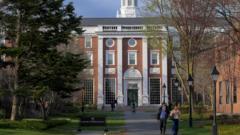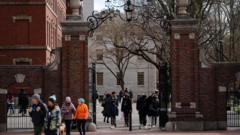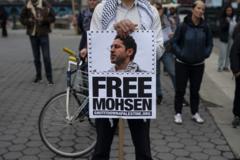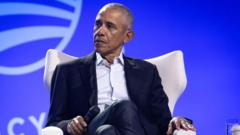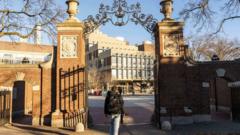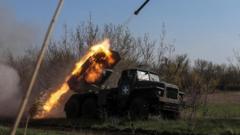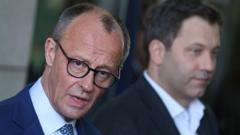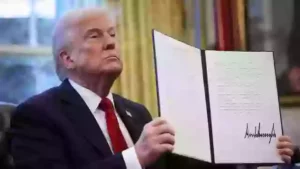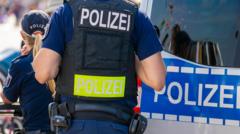Amie Liebowitz, a great-granddaughter of a Holocaust victim, interviews Cornelia Stieler, the granddaughter of a train driver who transported Jews to Auschwitz, revealing the haunting legacies of their family histories.
Echoes of the Past: Confronting Family Histories of the Holocaust
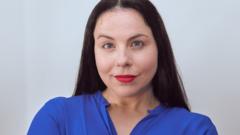
Echoes of the Past: Confronting Family Histories of the Holocaust
In an emotional encounter, two descendants from opposite sides of the Holocaust reflect on the complexities of guilt and historic responsibility.
Her grandfather drove trains to Auschwitz. My great-grandmother died there
By Amie Liebowitz
The weight of history feels unbearable as I find myself sitting across from Cornelia Stieler. She is the granddaughter of a man who, during the Holocaust, drove trains into Auschwitz, a place my own family was sent to and from. It’s an intersection of grief and guilt that I never imagined experiencing.
I have always carried the stories of my grandfather Ludvig and my great-grandmother Rachel with me. Ludvig survived Auschwitz, but Rachel did not. Only 15 at the time, Ludvig was separated from his mother and sent to another camp, while Rachel was subjected to the horrors of Nazi brutality. Their memories have been passed down, dusk and dawn, as a reminder of a dark chapter in our family's past.
During my interview with Cornelia in Germany, the confusion of emotions strengthens. Her grandfather's journey began with a different life; he worked as a coal miner until a catastrophic accident changed his path. Eventually, he became a train driver for Deutsche Reichsbahn, a position that led to him transporting not goods but people—Jews being shipped to their deaths.
Cornelia learned through family stories that her grandfather, initially oblivious to the full implications of his work, became haunted by what he witnessed. “He felt very, very guilty, and he died with his guilt,” she tells me, her voice trembling with emotion. What strikes me is the complexity of her grandfather's reality; individuals can find themselves on opposite sides of a narrative without fully understanding the repercussions of their choices.
As our conversation unfolds, we touch on the difficult concept of accountability—at what point does one become a perpetrator? Questions swirl in the air: Was he complicit in the atrocities he enabled by accepting his role?
With tears in our eyes, we connect as two women grappling with the ghosts of our pasts. I admit to Cornelia the bitter feelings that sometimes arise: “If I were any younger, I think I'd feel a strong hate towards you,” I confess, “But I don’t because saying all of those things must have been really difficult to admit.” She gestures a comforting hand toward me, acknowledging how our shared pain stitches a fragile bond amidst the horror.
We explore how the collective memory of the Holocaust has been treated across generations. Cornelia reveals that many people in Schönwald, the town of her family's history, have struggled to confront their connections to the Nazi legacy. The reluctance to accept responsibility and the urge to bury painful truths only serve to further distance the past from the present.
In Schönwald, where the indelible marks of history trace along its streets, former residents have often sought to suppress their experiences. The echoes of the death march that passed through the village as the Soviets closed in on Auschwitz are only now beginning to be acknowledged with heartfelt memorials and open conversation.
As we part ways, I feel a renewed commitment to remember my family's narrative while also recognizing the importance of confronting uncomfortable truths. Cornelia's research and passion illuminate a path toward understanding and accountability in a world that is often quick to forget.
Together, we may not be able to change the past, but we must continue to speak up—discussing the hurt, the history, and the humanity that can lead us toward a kinder future.

